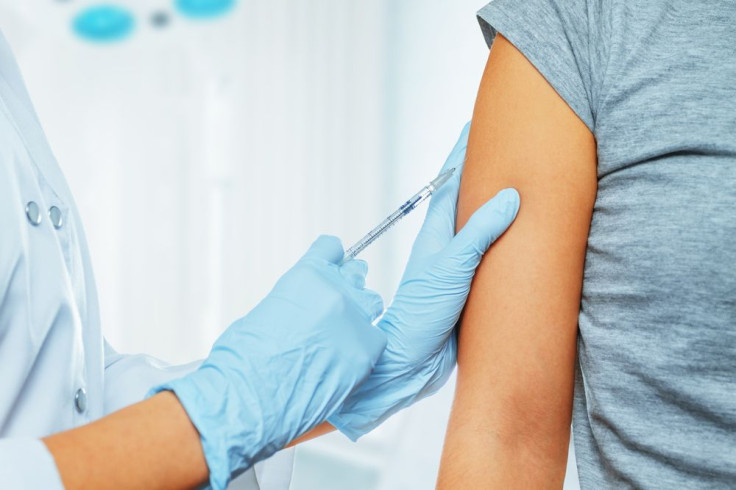HPV Vaccination Rates Among Teens See A Slight Increase, But Are Still Too Low

HPV vaccination rates are low and the Centers For Disease Control and Prevention (CDC) is not happy about it. In a recent report, the government agency expresses concern that doctors aren’t doing their job to inform patients. HPV, or the human papillomavirus, is the most common sexually transmitted disease. The CDC says it is so common that almost all sexually active men and women get it in their lifetime. HPV leads to cervical cancer, as well as other cancers like anal, penile, and throat cancer.
"Today I wish I had good news, but what I need to report is a small increase in vaccination," said Anne Schuchat, director of of the CDC's National Center for Immunization and Respiratory Disease, according to UPI. "Our system is clearly missing many opportunities. It is a relief that we did not continue to have flatlining in HPV vaccines."
The CDC's new report showed there was only a small increase in HPV vaccination among boys and girls in 2013. The study also found that only one-third of girls completed all three shots. About 79 million Americans are currently infected with HPV, and another 14 million people become infected each year. The CDC says that HPV is so common that most sexually active men and women will get at least one type of HPV at some point in their lives. There are currently two different vaccines available for HPV: Cervarix and Gardasil. Both protect people from cervical cancer, while Gardasil also protects against anal, vulvar, and vaginal cancers, as well as genital warts. The vaccines require three shots administered over the course of six months.
The CDC recommends that preteens, and teenage boys and girls aged 9 to 26 get the vaccines. When the vaccines first appeared, controversy surrounding their effects caused many parents to be nervous. Some parents felt that encouraging their sons or daughters to be vaccinated would cause them to become sexually active at a young age. There were also the sisters from Wisconsin who sued Gardasil, claiming the vaccine led them to develop early menopause, deeming them infertile. However, the CDC says the drug is safe, as it has been approved by The Food and Drug Administration. The agency stands behinf the vaccine, hoping to see increasing numbers of adolescents getting vaccinated.
HPV currently affects 79 Americans. It is transmitted through vaginal, anal, or oral sex with someone who has the virus. It can be passed down from person to person without displaying any symptoms.
Source: Stokley S, Jeyarajah J, Yankey D, et al. Human Papillomavirus Vaccination Coverage Among Adolescents, 2007–2013, and Postlicensure Vaccine Safety Monitoring, 2006–2014 — United States. Morbidity And Mortality Weekly Report. 2014.



























